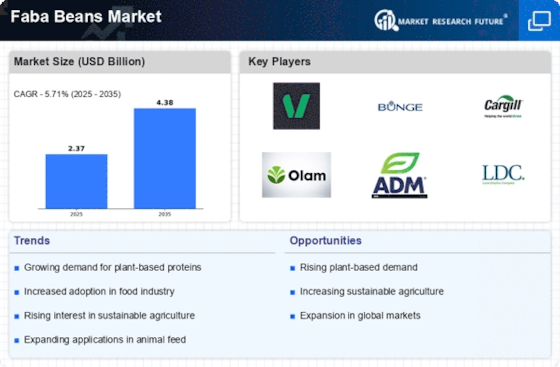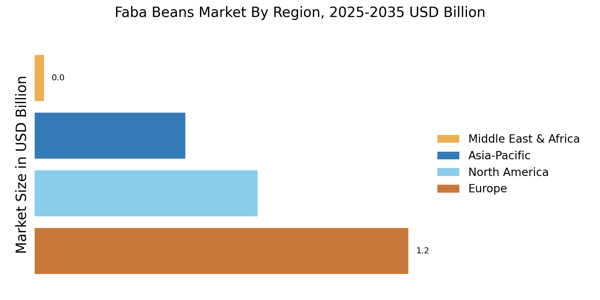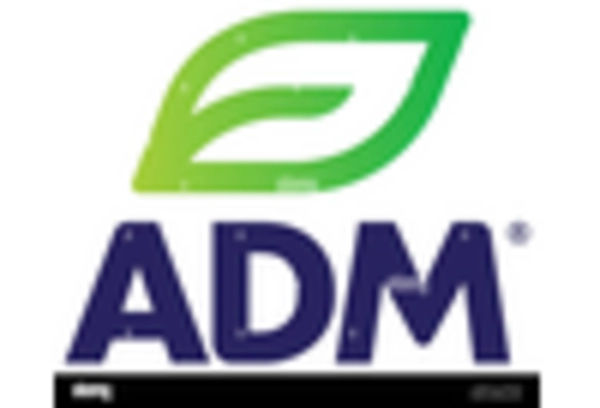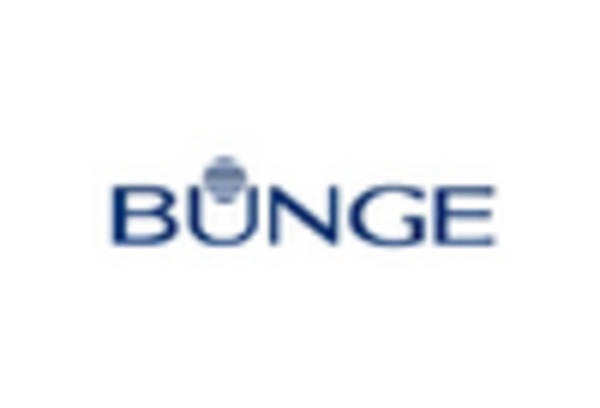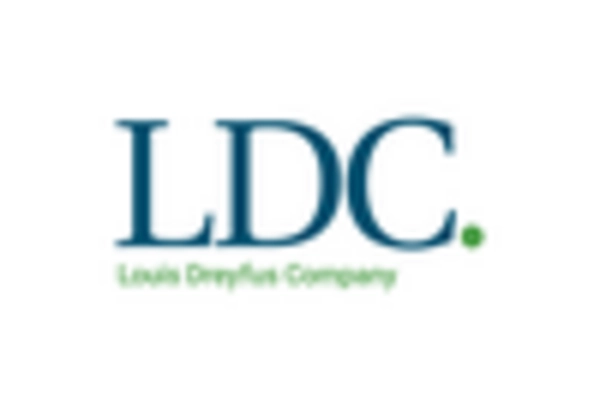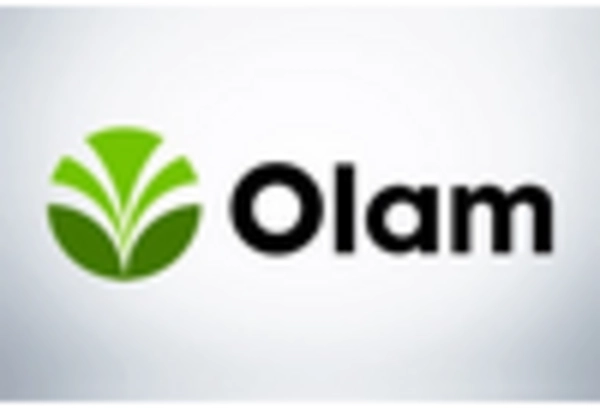Expansion of Food Processing Sector
The Faba Beans Market is poised for growth due to the expansion of the food processing sector, which increasingly incorporates faba beans into various products. The versatility of faba beans allows them to be used in a wide range of applications, from snacks to meat alternatives. As food manufacturers seek to diversify their product offerings and cater to the rising demand for plant-based options, faba beans are becoming a favored ingredient. Recent market analyses suggest that the processed food sector is expected to grow significantly, providing ample opportunities for faba beans to penetrate new markets. This trend indicates a promising future for faba beans as a staple ingredient in the evolving food landscape.
Increased Focus on Sustainable Farming
Sustainability has become a pivotal concern within the Faba Beans Market, as agricultural practices evolve to address environmental challenges. Faba beans are recognized for their ability to fix nitrogen in the soil, which reduces the need for synthetic fertilizers and promotes soil health. This characteristic aligns with the increasing emphasis on sustainable farming practices, as farmers seek to minimize their ecological footprint. Furthermore, the cultivation of faba beans can contribute to crop rotation strategies, enhancing biodiversity and soil fertility. As consumers and producers alike prioritize sustainability, the demand for faba beans is likely to rise, positioning them as a key player in the sustainable agriculture movement.
Rising Demand for Plant-Based Proteins
The Faba Beans Market is experiencing a notable surge in demand for plant-based proteins, driven by a growing consumer preference for healthier dietary options. As more individuals adopt vegetarian and vegan lifestyles, the need for alternative protein sources has intensified. Faba beans, rich in protein and essential nutrients, are increasingly recognized as a viable substitute for animal proteins. Recent data indicates that the plant-based protein market is projected to grow at a compound annual growth rate of over 10% in the coming years. This trend not only reflects changing dietary habits but also highlights the potential for faba beans to play a crucial role in meeting global protein needs, thereby enhancing their market presence.
Growing Awareness of Nutritional Benefits
The Faba Beans Market is benefiting from a heightened awareness of the nutritional advantages associated with faba beans. These legumes are not only high in protein but also rich in dietary fiber, vitamins, and minerals, making them an attractive option for health-conscious consumers. Recent studies have highlighted the potential health benefits of faba beans, including improved digestive health and reduced risk of chronic diseases. As nutrition becomes a focal point in consumer decision-making, the demand for faba beans is expected to increase. This trend is further supported by the rise of health-focused food products, which often incorporate faba beans as a primary ingredient, thereby expanding their market reach.
Technological Advancements in Agriculture
Technological innovations are playing a transformative role in the Faba Beans Market, enhancing production efficiency and crop yields. Advances in agricultural technology, such as precision farming and improved seed varieties, are enabling farmers to cultivate faba beans more effectively. These technologies not only optimize resource use but also contribute to higher quality produce. For instance, the adoption of smart irrigation systems and soil monitoring tools can significantly improve the cultivation process. As these technologies become more accessible, the potential for increased faba bean production is likely to rise, thereby strengthening the market position of faba beans in the agricultural sector.


